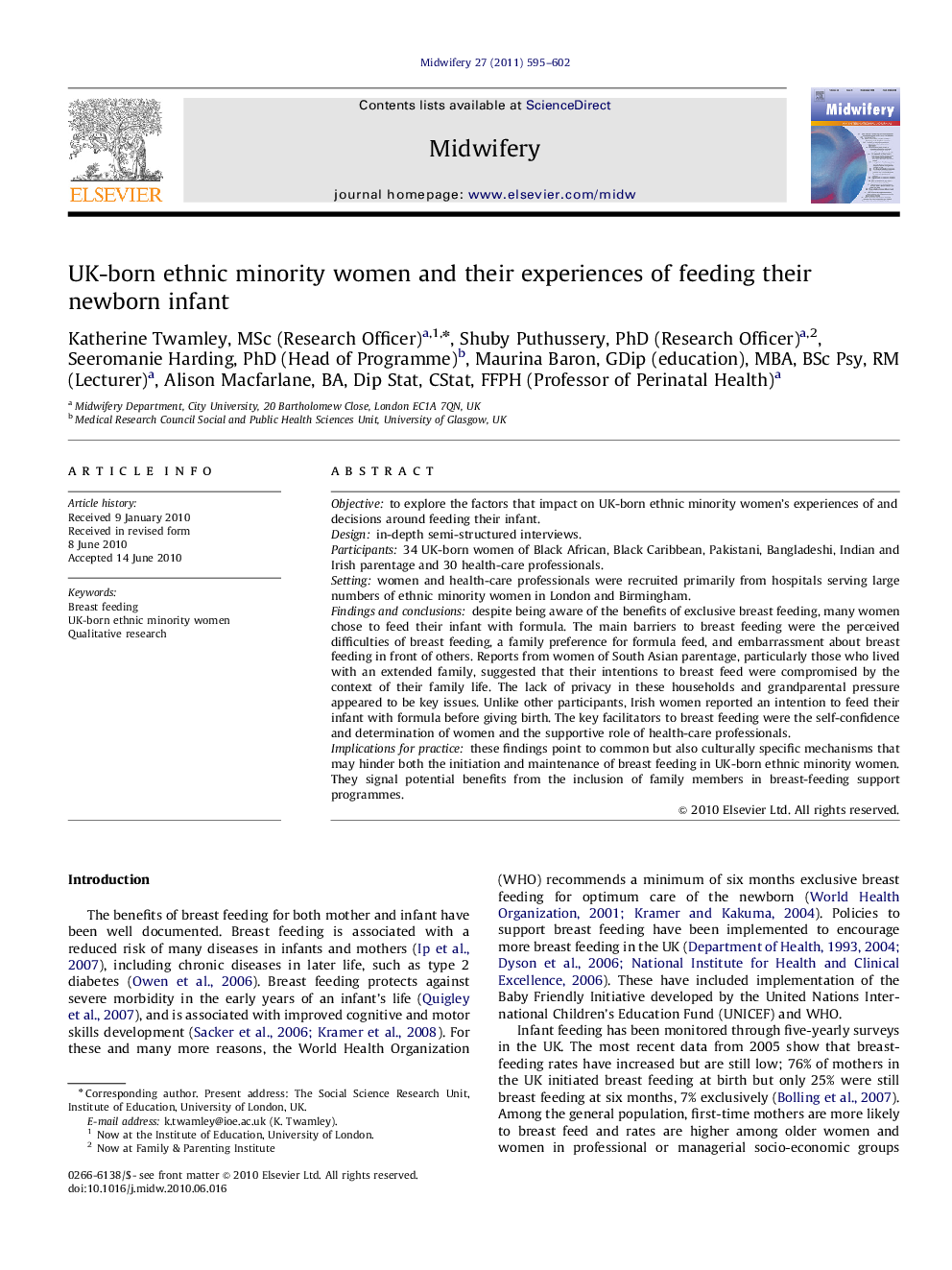| Article ID | Journal | Published Year | Pages | File Type |
|---|---|---|---|---|
| 1084669 | Midwifery | 2011 | 8 Pages |
Objectiveto explore the factors that impact on UK-born ethnic minority women’s experiences of and decisions around feeding their infant.Designin-depth semi-structured interviews.Participants34 UK-born women of Black African, Black Caribbean, Pakistani, Bangladeshi, Indian and Irish parentage and 30 health-care professionals.Settingwomen and health-care professionals were recruited primarily from hospitals serving large numbers of ethnic minority women in London and Birmingham.Findings and conclusionsdespite being aware of the benefits of exclusive breast feeding, many women chose to feed their infant with formula. The main barriers to breast feeding were the perceived difficulties of breast feeding, a family preference for formula feed, and embarrassment about breast feeding in front of others. Reports from women of South Asian parentage, particularly those who lived with an extended family, suggested that their intentions to breast feed were compromised by the context of their family life. The lack of privacy in these households and grandparental pressure appeared to be key issues. Unlike other participants, Irish women reported an intention to feed their infant with formula before giving birth. The key facilitators to breast feeding were the self-confidence and determination of women and the supportive role of health-care professionals.Implications for practicethese findings point to common but also culturally specific mechanisms that may hinder both the initiation and maintenance of breast feeding in UK-born ethnic minority women. They signal potential benefits from the inclusion of family members in breast-feeding support programmes.
